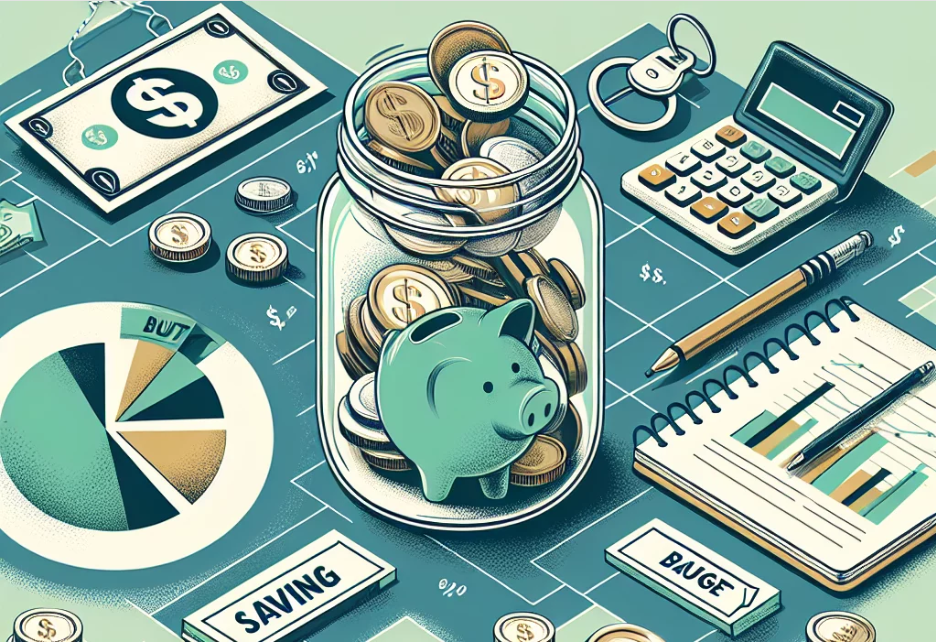Mastering Personal Finance: Tips for Budgeting, Saving, and Reducing Debt
Receiving financial security and living a life that is free and peaceful both hinge on playing according to the rules of personal finance. In learning to personally manage money, you will be best prepared for the things that may come along — hopefully reducing your concerns and treading nearer to the financial goals you have set for yourself. This article teaches practical access to, saving money, eliminating debt three key aspects in financial planning for prosperity
1. Creating A Realistic Budget
The foundation of personal finance is budgeting. A well-prepared budget records your earnings and outgoings, and ensures you live within your means. It takes cash from financial sources to meet financial needs Here are the steps for creating a realistic budget: – Tracking: To begin, keep track of where your money went in the last month. List categories in spending like housing, food transportation, entertainment and saving.
– Set spending limits: Using the small expenses bill as your alms, set limits for each category. Though Other price tags, however intermittent payments such as car repairs or medical bills must still be taken into account.
– Need comes before want: First Determine Basic Expenses such as your rent or mortgage, heating, electricity and food. Then, after including both leisure as well as savings into the budget carefully file away.
– Regularly Review and Gut Check: Do not stick to the idea that budgets are fixed. Regularly examine the circumstances and even attitudes behind your fiscal plan — it needs scrutiny from new job changes, bills not yet foreseen but clearly an ongoing expenditure etc.
2. The third priority objective building your emergency fund
An emergency fund is money set aside for life’s little emergencies, like medical crises, car repairs or loss of employment. Having such funds allows us to avoid leaning on credit cards or taking out high-interest loans.– What is the best approach to building up an emergency fund?
– Set a target for savings: You should aim to save enough to cover three to six months’ living expenses. This amount will keep your head above water if the worst should happen. It should cover basic living expeneis like housing costs, utilities, food and transport fares.
– Start small and automate your savings plan: Begin by saving a pufficient amount out of every payday cheque, and increase it gradually as time goes on. Get the bank to deposit your savings directly into your account which is used only for this purpose — emergency money.
– Keep It Handy But Separate From Normal Bank Account: Your emergency fund should be available for use at very short notice when in urgent need — never too far away! Just make sure that it is kept well apart from your everyday checking account in order to avoid the temptation of spending it.
3: Reducing and Managing Debt
Debt might hinder what you want to achieve financially. And with debts reduce the bang (and the buck) of yourself. But by fostering a reasoned game plan, debt can be effectively managed or even eliminated altogether.
How do you do it?
1. Pay Off Higher-Interest Debts First: If you have many different kinds of credit, smaller ones of the same type are usually cheaper than large ones made at high interest rates. To begin with, lend them money that has been borrowed ones close together and replace it quickly so as not to accumulate so have neither much higher interest nor large amount unpaid over a longer time; If possibleaccord you may an exemption via hard work from suffering.
Leave it to God how you will make your next six months ‘prodigal or sorrowful’; just remember that we are not creators but creatures—or are we aliens put into a strange new world with feelings more peculiar than those experienced by Earth-sent men living in outer darkness. That is life in action! As soon as you start moving, everything around begins to move. Just keep moving and never let your feet leave the ground until finish what needs doing; then–well,?
2. Use System Snowball or Avalanche: The snowball system pays off your smallest debts first so as to give you a sense of achievement, and the highest-interest debts next. Choose whichever approach best fits your financial situation and temperament.
3. Consolidate Your Debts: If you have more than one debt, how about combining all of them into a single loan with an interest rate that is lower than those for the individual loans? Not only will this simplify your payments and lessen the total amount you finally pay, it will also make it easier to understand things.
If you ever happen to have free time on a Sunday afternoon or Wednesday evening, don’t forget our office. The director will be there himself; yes, he comes in person and doesn’t just send down orders from above or through intermediaries as some others do. And if you should happen upon an honest peasant with no strings attached who is looking for something to do, it will give him a chance to work before you start setting him unstable.
4. Avoid New Debt Payback: While you’re clearing up old loans, don’t be tempted to create more. Remember that thrift and smart use of credit cards are still the best policy.
4. Plan for the Future
After you’ve made a budget, saved some money, and paid off your debts, your turn: it’s time to look ahead toward the future. Begin planning with concrete financial goals in mind–for example, saving up for a new home or retirement package. Consider setting up retirement accounts such as IRAs( individual retirement accounts) and 401(k) plans to take advantage of tax benefits and long-term compound interest.*28.问题句议 囎*A haven of peace and comfort, alas! Duts visited twice yearly by the Nepalese king’s relatives when he wishes them to beget more offspring but they prefer Kathmandu or some other place.
5. Summing upLeading one’s life demands power, vigilance and self-discipline. But when the three are present correctly, a new world appears. By establishing strict budgets based on realistic expectations, creating a contingency fund and paying off long-term debts at scheduled intervals – inch by inch we can advance toward a secure future. Make conscious decisions. Steadfastly continue on your chosen path, or at least one that might lead to financial survival; keep looking back regularly and your situation today often changes dramatically but which is generally right for you.










